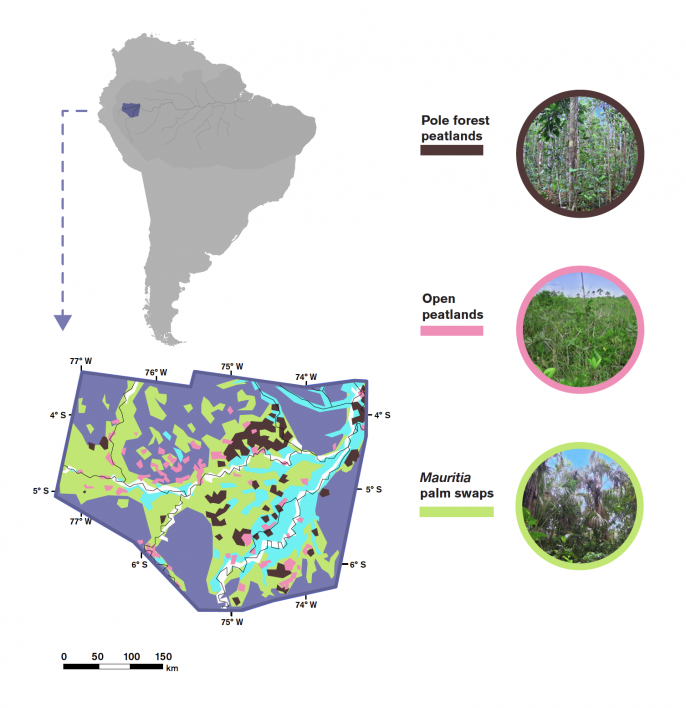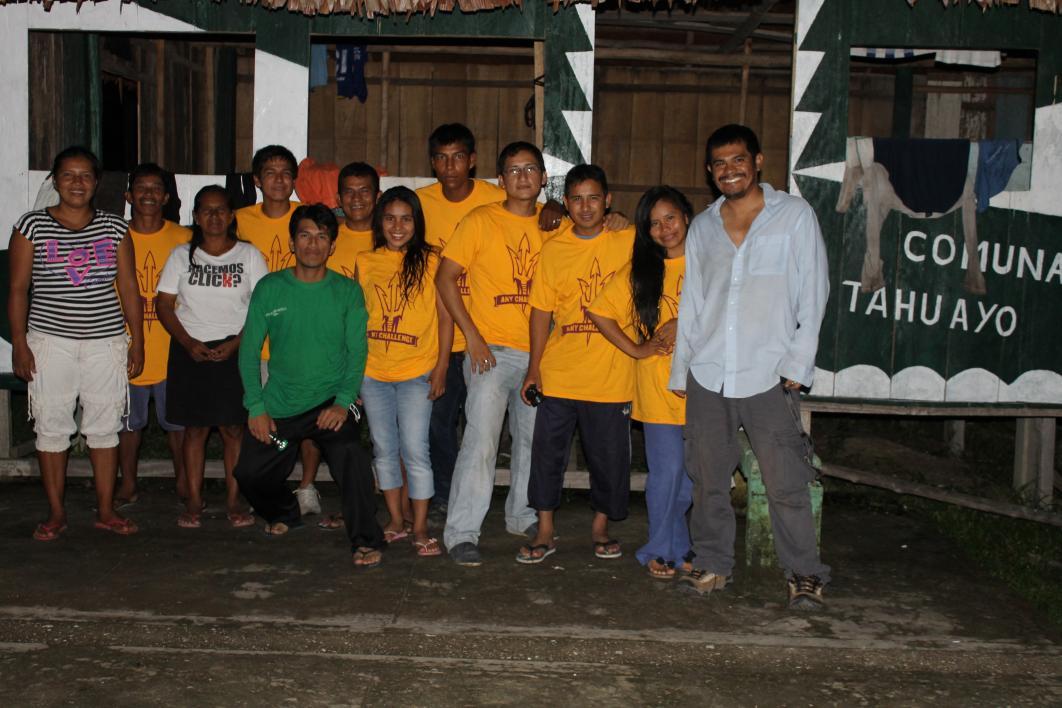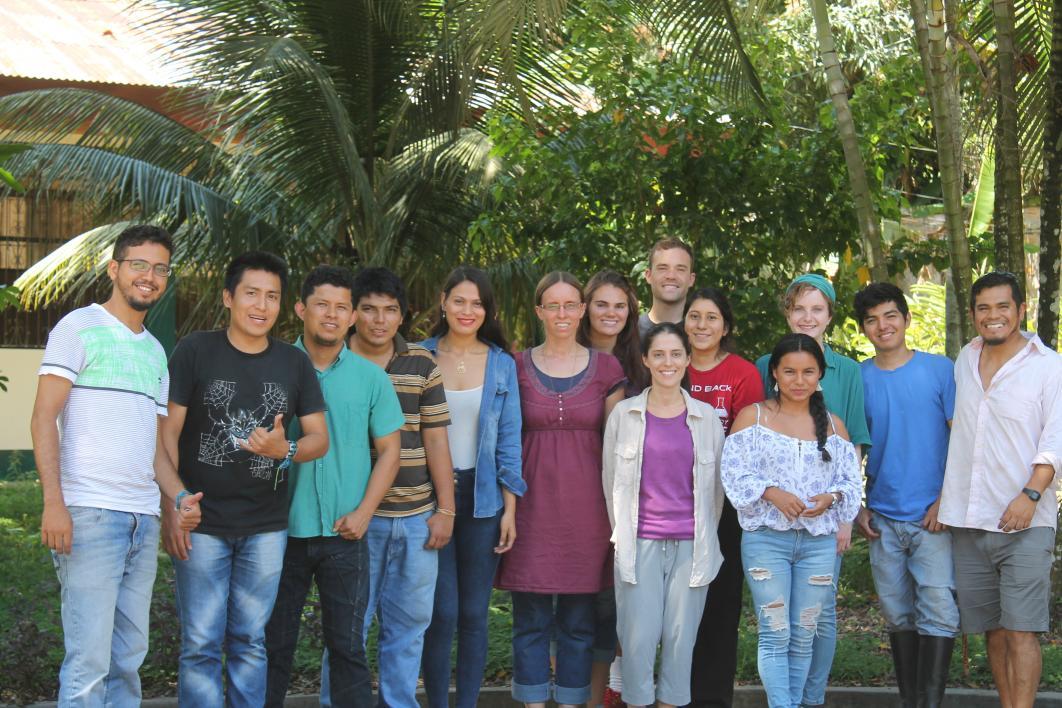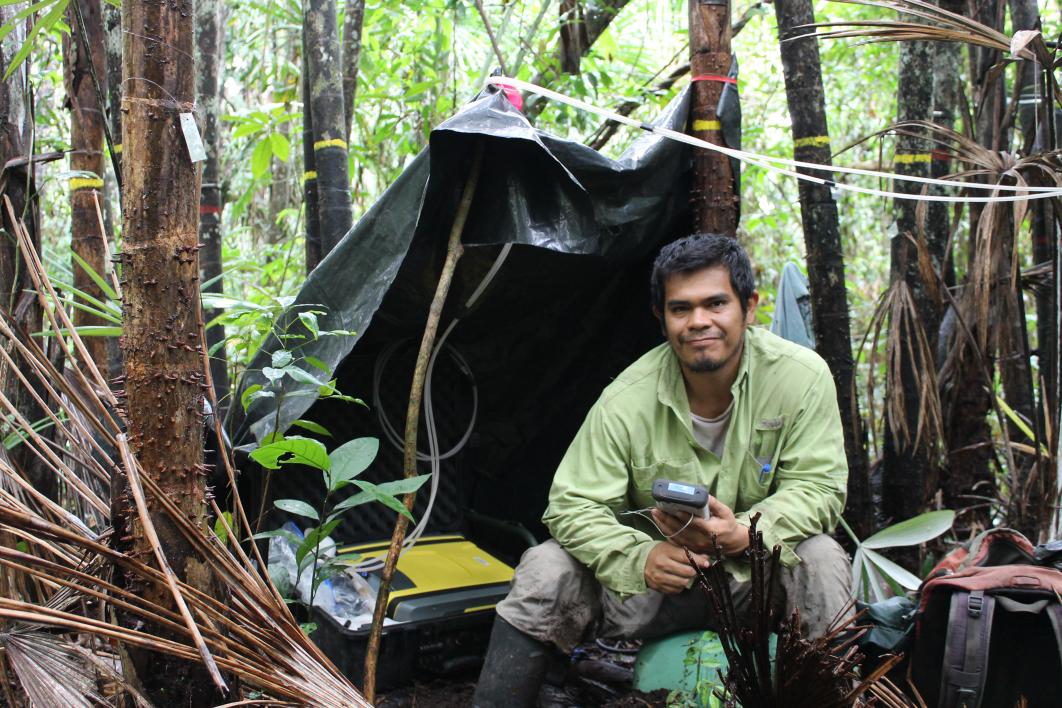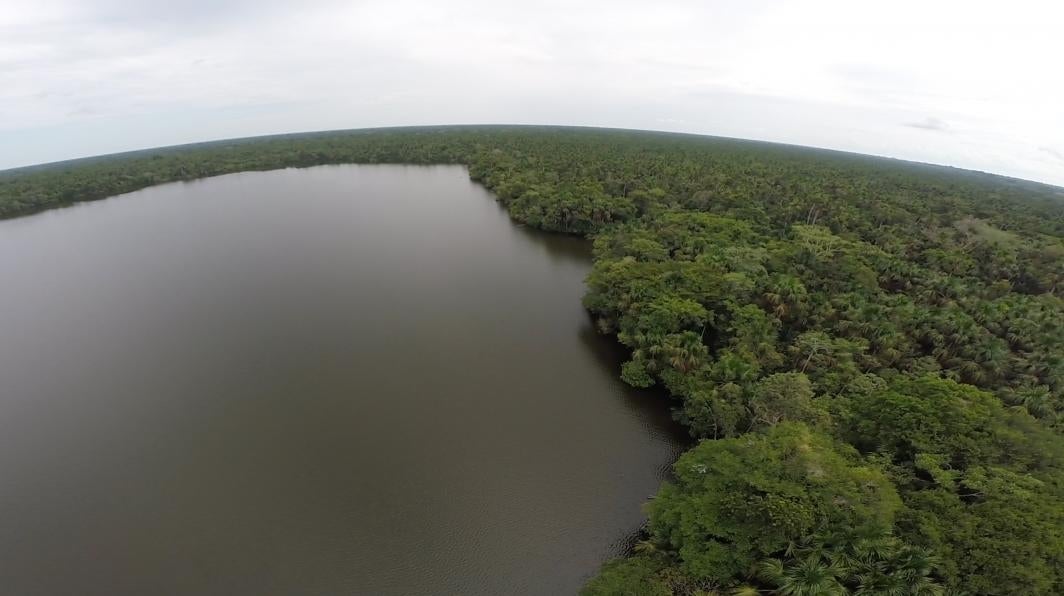ASU microbiologist receives NSF CAREER Award to study greenhouse gases

Associate professor Hinsby Cadillo-Quiroz (right), along with ASU undergraduate researcher Carlos Courtney (left) and high school student Jesus Fernandes, deploy a soil microbial community manipulation experiment in Quistococha, Iquitos, Peru. Photo: Sandra Leander/ASU School of Life Sciences
Hinsby Cadillo-Quiroz, a microbiologist and associate professor with Arizona State University’s School of Life Sciences, has received a prestigious National Science Foundation (NSF) CAREER Award for his work in the Amazon.
Cadillo-Quiroz and his international team of researchers are studying the Amazon peatlands from an ecosystem perspective — investigating microbes, tree size and growth, climate and floods, and changes in greenhouse gases such as CO2, methane and nitrous oxide. More specifically, they are learning about the connections between microorganisms and elements of the Amazonian ecosystems that lead to the consumption and production of methane gas.
“I’m proud to receive this award and pleased that the National Science Foundation recognizes the importance of our work in the Amazon,” said Cadillo-Quiroz. “The Amazon basin has a large area of peatlands that are releasing high levels of methane and we do not understand the microbial contribution to this situation.
“It’s critical that we develop new tools and protocols to better understand these important ecosystems. But we also need to account for the pressure that climate change is having on peatlands and on the organisms that moderate methane cycling. Then we may be able to make better decisions in land management,” he said.
Peatlands are an important part of our world’s ecosystem, as they effectively absorb and store large amounts of carbon dioxide from the atmosphere. Globally, they cover only about 3 percent of the world’s land area but store two times more CO2 than all other land biomass combined. Previous studies on northern peatlands have shown these boggy lands can quickly change from an environment that absorbs greenhouse gases to ones that releases large amounts of CO2 and methane instead.
One of his project’s goals is to create a predictive microbe-inclusive model that researchers can use to better understand methane cycling at local or regional levels in the Amazon. This will be an important tool in managing ecosystems and predicting regional atmospheric conditions.
Additionally, by studying microbes that live both inside and outside of the Amazonian peatlands, Cadillo-Quiroz’s team hopes to show exactly what role microbes play in the absorption or release of greenhouse gases.
Furthermore, to expand the knowledge base and research capacity for the tropics, Cadillo-Quiroz will develop inquiry-based learning modules for undergraduate and graduate education. These modules will have U.S. and international collaborative research components. ASU undergraduate researchers and educators will complete their research activities with partner institutions in countries with Amazonian peatlands.
“We are working at the cutting-edge of scientific knowledge about the world’s tropics. Building long-term capacity in these regions is as critical as knowledge generation. We are always enthusiastically looking for more partners to study peatlands with us, and to help us make a better world,” said Cadillo-Quiroz.
The five-year NSF CAREER Award totals more than $650,000. This award is the most prestigious in support of early-career faculty who have the potential to serve as leaders in their respective fields of research. Cadillo-Quiroz received the award earlier this year while an assistant professor at the school.
More Science and technology

ASU-led space telescope is ready to fly
The Star Planet Activity Research CubeSat, or SPARCS, a small space telescope that will monitor the flares and sunspot activity…

ASU at the heart of the state's revitalized microelectronics industry
A stronger local economy, more reliable technology, and a future where our computers and devices do the impossible: that’s the…

Breakthrough copper alloy achieves unprecedented high-temperature performance
A team of researchers from Arizona State University, the U.S. Army Research Laboratory, Lehigh University and Louisiana State…


